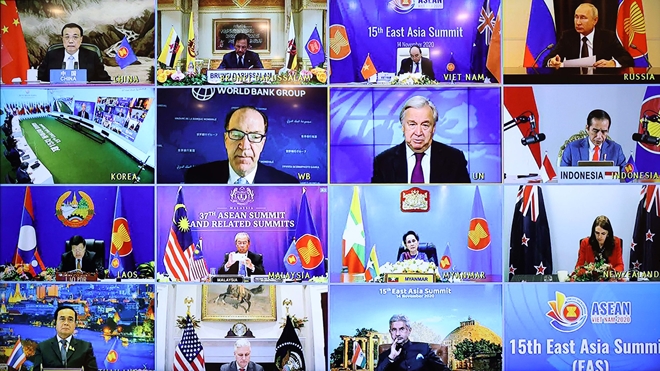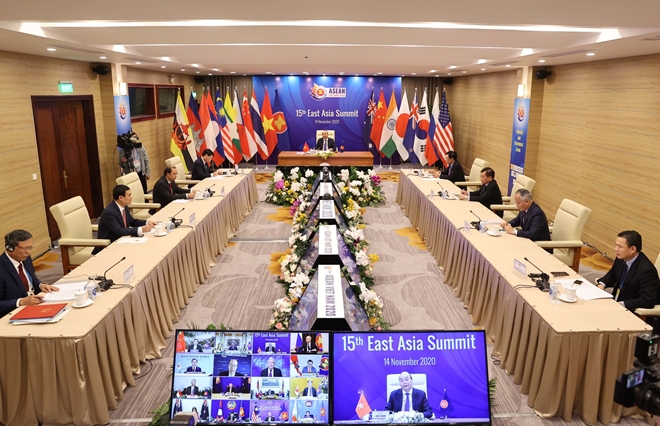ASEAN Summit: UN, WB applaud regional responses to COVID-19
- PM urges New Zealand to open door wider for ASEAN goods
- Australia supports ASEAN’s COVID-19 response efforts
- Modern Diplomacy hails Vietnam’s ASEAN Chairmanship in 2020
Strong example in dealing with COVID-19
Speaking at the event, Secretary-General of the United Nations António Guterres said that, the pandemic has caused profound disruption around the world. The countries of East and Southeast Asia have set a strong example in dealing with the pandemic.
However, the economic and social crises triggered by COVID-19 have added to the challenges of the immediate health crisis. In East Asia alone, as many as 39 million people could revert to extreme poverty.
Therefore, the global community needs to tackle this challenge with compassion and solidarity to recover stronger and stay on track to achieve the Sustainable Development Goals. The United Nations, led by the World Health Organization, has been working to coordinate global efforts to develop and scale up the production of effective vaccines and therapeutics.
 |
"These must be available and affordable for everyone, everywhere. No one is safe until we are all safe. The United Nations has also coordinated a Global Humanitarian Response Plan for those most in need", said UN Secretary-General António Guterres.
Accordingly, UN has called for countries to mobilize a stimulus package amounting to at least 10 per cent of global Gross Domestic Product. But, tt is essential that we invest in people, including through social protection, universal healthcare and quality education.
"Together, we can use the response to COVID-19 to build a world with less inequality, that is more inclusive and more sustainable", he said.
First region to recover from COVID-19 crisis
Agree to UN Secretary-General's remarks, World Bank Group President David Malpass pointed out that, in its first year, COVID-19 may push up to 150 million people into extreme poverty, ending two decades of steady progress on poverty reduction.
"The impact is harshest on the poorest countries and the poorest people within each country, adding to inequality. The pandemic is likely to leave a lasting scar on the next generation. Sickness, food insecurity, job losses, and school closures are leading to the erosion of human capital", he stressed.
 |
In order to reduce the COVID-19's consequence, the World Bank Group has moved rapidly to deploy its full financial capacity. "We are on track to commit a record $160 billion over 15 months, including grants and concessional financing. 40% of this amount was committed in the first six months", said President David Malpass.
World Bank also established a fast-track COVID response that has delivered emergency support to 112 countries so far. World Bank made available up to $12 billion of fast-track financing to client countries for them to choose, purchase and deploy COVID-19 vaccines.
He then stressed that, in the current crisis, East Asia was the first to enter crisis and is well positioned to be the first region to recover from it. Countries will need to prepare for a different economy post-COVID, by allowing capital, labor, skills and innovation to move into new businesses and sectors.
The disruption of trade and global value chains presents both a challenge and an opportunity. The World Bank strongly supports trade facilitation measures to encourage greater flows across borders. We’ve expanded trade finance to banks in the East Asia and Pacific region and beyond.
"The challenges are daunting, but I’m optimistic that solutions are possible and indeed likely. I know that the World Bank Group is working hard to do as much as we can to help respond to the crisis and strengthen the recovery. Thank you for your attention and I wish all of you good health, safety and success", World Bank Group President affirmed.

